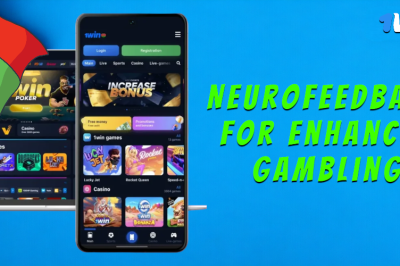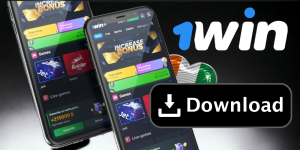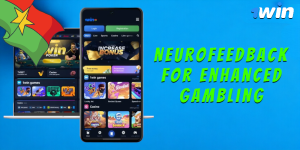In gambling, where every decision can make or break fortunes, the quest for competitive advantage is relentless. From seasoned professionals to casual players, people are constantly looking for methods to improve their performance and chances of success. One such new method that has gained attention in recent years is neurofeedback. Let’s understand what it is and how the technology is being used at 1Win site officiel.
What is Neurofeedback
Neurofeedback, also known as EEG biofeedback or brainwave training, is a non-invasive technique that uses real-time mapping of brain activity to teach self-regulation of brain function. It acts by providing people with information about their brainwave patterns, they can learn to modify these patterns to achieve desired mental states.
The process typically involves placing sensors on the scalp to measure the electrical activity of the brain. This data is then processed and presented to the person in the form of visual or auditory feedback, such as a video game or audio cues. Through repeated sessions, users can learn to control their brain waves after 1Win login, leading to improvements in various cognitive and emotional functions.
The gambling industry, always looking for innovative ways to attract and retain customers, has begun to explore the potential of neurofeedback technology. Betting companies will soon start using neurofeedback techniques to enhance the performance of both professional players and amateur bettors, offering them a unique advantage in the fiercely competitive world of gambling.
One prominent player in this field is 1Win Burkina Faso, an online betting platform that is exploring and thinking about neurofeedback as part of its strategy to differentiate itself in the market. By incorporating the technology into its platform, 1Win betting aims to provide its users with a personalised and immersive gambling experience that goes beyond traditional betting offerings.
How betting companies are utilising neurofeedback
Companies such as 1Win Burkina Faso use neurofeedback in several ways to enhance the gaming experience for their users:
- Customised neurofeedback training programmes tailored to the needs and preferences of individual users. Through an initial assessment of users’ brainwave patterns, the platform develops training protocols aimed at optimising gambling-related cognitive functions such as concentration, decision-making and emotional regulation.
- During betting sessions, the platform can provide real-time neurofeedback to users, allowing them to monitor and adjust their mental state based on brainwave activity. This feedback loop allows players to stay in the zone of peak performance, enhancing their ability to make informed decisions and capitalise on betting opportunities.
- 1 Win casino will be able to track users’ progress over time by analysing neurofeedback data to identify patterns and trends in their cognitive function. This data-driven approach allows the platform to offer personalised recommendations and interventions to optimise users’ gaming strategies and outcomes.
Pros of using neurofeedback
The integration of neurofeedback into the gambling industry according to 1Win BF review offers users several potential benefits:
- By training users to regulate their brain activity, neurofeedback can improve cognitive functions such as attention, memory, and executive function, thereby improving users’ ability to make informed decisions while betting.
- Gambling often evokes strong emotions such as excitement, frustration and anxiety, which can cloud judgement and lead to impulsive decisions. Neurofeedback can help users regulate their emotions more effectively, reducing the risk of irrational behaviour and losses.
- Neurofeedback programmes can be tailored to the specific cognitive needs and goals of individual users, ensuring that they receive targeted training to optimise their gaming performance.
Cons of using neurofeedback
However, the integration of neurofeedback into the gaming industry also raises some concerns and considerations:
- The use of neurofeedback to enhance gambling performance raises ethical questions regarding fairness and the potential exploitation of vulnerable people, especially those with gambling addictions or a propensity for compulsive behaviour.
- Despite growing interest in the potential of neurofeedback to improve cognitive function, empirical evidence supporting its effectiveness in the context of gambling is still limited. Further research is needed to confirm and explore long-term effects.
- There is a risk that users may become overly dependent on neurofeedback technology, neglecting other factors that contribute to successful gambling outcomes such as strategic analysis, probability assessment and bankroll management.
- The collection and analysis of user brainwave data raises concerns about data privacy and security, especially in light of the sensitive nature of gambling-related information. Betting companies like 1Win Burkina Faso must ensure strong measures are in place to protect users’ personal data and neurofeedback data from unauthorised access or misuse.
Neurofeedback promises to be a performance enhancing gambling tool, offering users the opportunity to optimize cognitive function and gain a competitive advantage in the highly competitive world of gambling. Companies such as 1Win betting are utilising this technology as part of their efforts to innovate and highlight themselves in the market. However, the ethical, efficiency and privacy considerations associated with neurofeedback emphasise the need for careful evaluation and regulation of its use in the gambling industry. As this area continues to evolve, ongoing research and responsible implementation will be essential to maximise the benefits of neurofeedback while mitigating potential risks.









